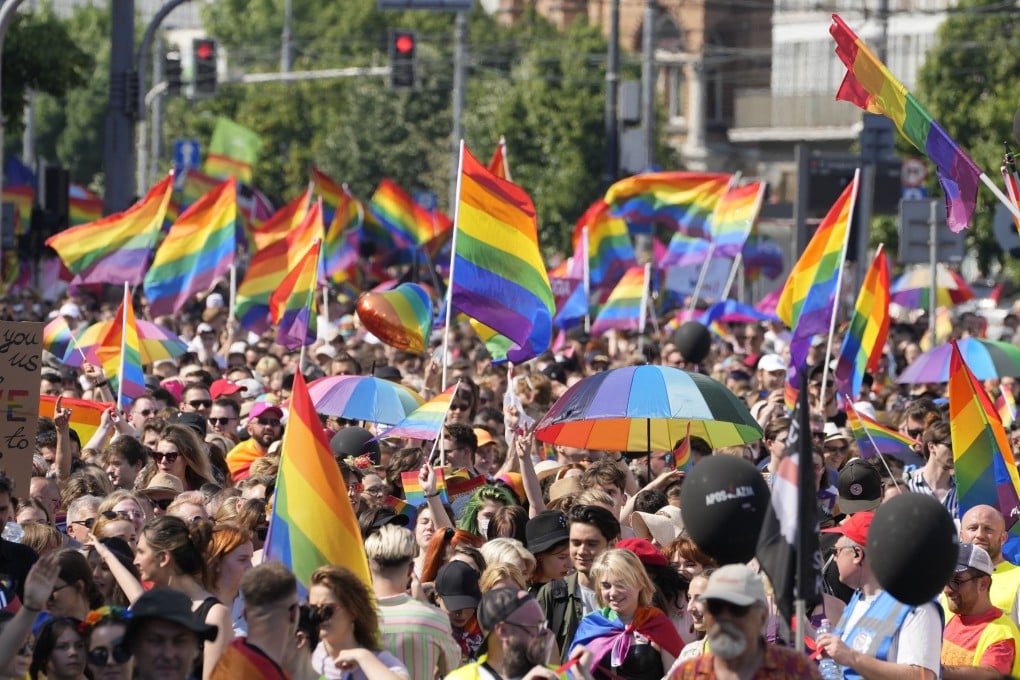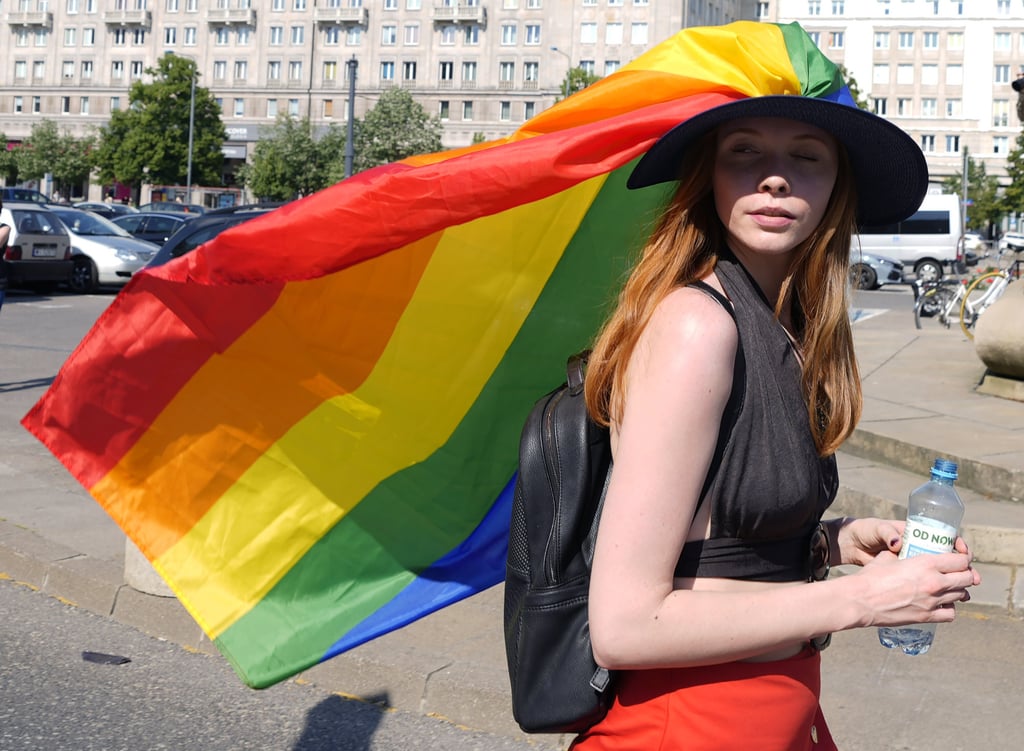Warsaw pride parade back for first time in two years after anti-LGBTQ+ backlash and coronavirus pandemic
- Warsaw Mayor Rafal Trzaskowski walked at the head of the Equality Parade on Saturday – a sign of support for LGBTQ+ rights by the liberal politician
- The parade comes days after Hungary’s parliament passed a law that makes it illegal to show any materials about LGBTQ+ issues to people under the age of 18

The largest gay pride parade in central Europe took place again in Warsaw for the first time in two years after a pandemic-induced break – and amid a backlash in Poland and Hungary against LGBTQ+ rights.
Warsaw Mayor Rafal Trzaskowski walked at the head of the Equality Parade on Saturday – a sign of support for LGBTQ+ rights by the liberal politician. Thousands of people joined the march and were cheered on by others waving rainbow flags from their balconies and pavement cafes.
But that level of acceptance is not universal in Poland, a heavily Catholic, largely conservative nation.

The colourful celebration was tinged with fear of what the future holds for the rights of gay men, lesbians, bisexuals and transgender people after setbacks first in Russia and now in Hungary.
“The day of the parade is always a bittersweet moment for our community,” said Rafal Wojtczak, a spokesman for the organisers. He described feelings of sadness and helplessness that LGBTQ+ people have not achieved rights liked same-sex partnership or marriage in Poland, while also facing new threats.
The parade comes days after Hungary’s parliament passed a law that makes it illegal to show any materials about LGBTQ+ issues to people under 18.
Hungary’s conservative ruling party portrayed the law as an effort to fight paedophilia. But human rights groups see it as a cynical tool that will stigmatise LGBT people, and prevent youth from accessing critical information.
Poland’s populist ruling party has taken a political direction very similar to that of Hungary under Prime Minister Viktor Orban, pushing conservative policies and tightening ruling party control over courts and media. The European Union has criticised both these two member nations, accusing them of eroding democratic norms.
